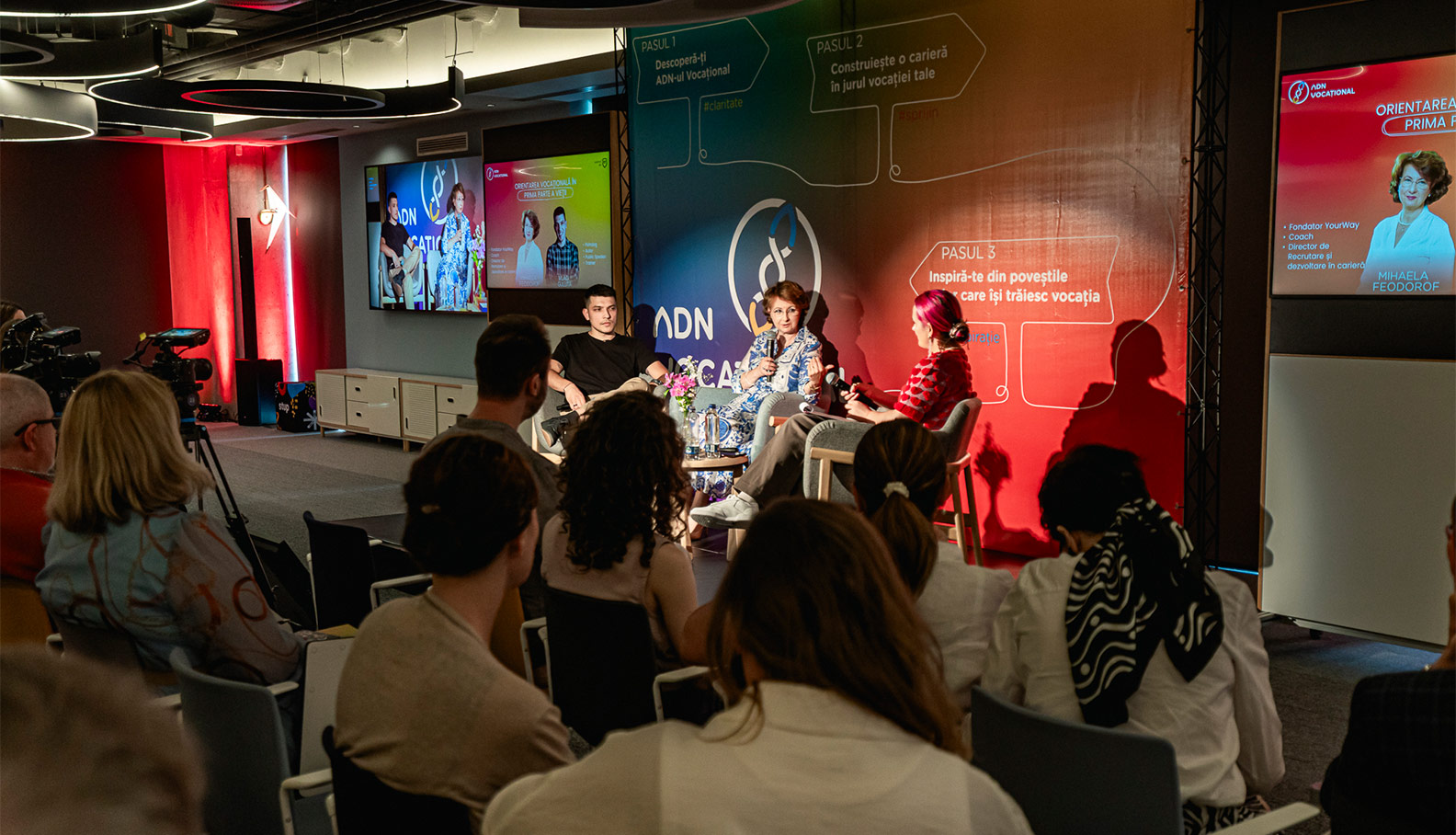Study: Romanians' vocation under the magnifying glass
24 June 2025 Reading time 4:00 minutes

On the occasion of the launch of the project Vocational DNA by the Mind Architect team, the results of the Romanians' Vocation under the magnifying glass study were presented, with the aim of identifying/analyzing the population's attitude towards career and personality-job alignment, according to different age categories.
The launch of the project, which is supported by Banca Transilvania, and the presentation of the results of the study took place in June 2025, in Bucharest, at Stup.
The Vocational DNA Platform provides an applicable framework for vocational guidance, based on the TPVM-P model: talents, passions, values, motivations and personality traits.
Study findings:
Almost half of Romanians, of all ages, are dissatisfied with the job they have because they feel it does not reflect their values, passions and talents. They also face a range of fears, from the fear of not finding the right employer and a fair salary, to feeling stuck or burnout.
- People aged 18 to 21: 61% of them feel they are not aware of their skills/are only slightly aware and 26% don't know which profession they will choose
- 78% think they need guidance (slightly higher than the 16-18 age group, which was 75%);
- 61% believe they are not aware of their abilities/are aware to a limited extent;
- 26% don't know what profession they will choose; 29% want to become entrepreneurs and 27% want to work in corporations;
- What motivates them in their job search: exploring their passions and acquiring skills that will help them in the future;
- People aged between 22 and 27: Not half of them are satisfied in their current job, and what would change at companies is about increasing pay, investing in training and hiring more people
- 76% work in a field similar to the one they graduated in;
- What would change in the current job: pay increases, investing in training, hiring more people;
- Aspirations: they want to learn, to evolve, they want to follow trainings (similar to the previous age category);
- People aged between 28 and 35: 19% said they don't know if they are paid fairly in relation to expertise & hours worked. But of those, 63% want pay increases
- 19% said they don't know if they are paid fairly, in relation to expertise & number of hours worked, but of these, 63% want pay increases;
- 65% work in a field that is similar to the field of study;
- The need for change is strong in this category.
- People aged 35 to 43: 70% are working in a field that is aligned to some extent with their degree
- 70% are working in a field that is aligned to some extent with their degree;
- The percentage of entrepreneurs is double that of respondents in the 36-43 age group;
- Poor management is among the main reasons for job change.
- For this generation, the ratio of values - passions - talents vs. job does not differ fundamentally from the previous generation. Approximately 8% less than the previous generation consider their job to be very important in the current life stage, indicating the idea of changing priorities, with family prioritized.
- People aged between 44 and 50: Shifting career priorities on the rise
- 74% work in a field that is similar or close to their field of study;
- Most choose to stay in their current job and get promoted, or stay in their current position.
- For people of these ages, the trend of changing career priorities is increasing (+4% compared to the previous category).
- People aged 50+: No major differences from previous category. What appears new is the (moderate) increase in the degree of alignment of values - passions - talents.
The survey was conducted from October 1, 2024 to April 30, 2025, on a sample of nearly 2,000 people, aged 16 to over 50.
Useful files

Press contact
Other articles

DECEMBER 4, 2025

A little more
I just sent an email to you. Confirm your subscription by clicking on the link in the email.











